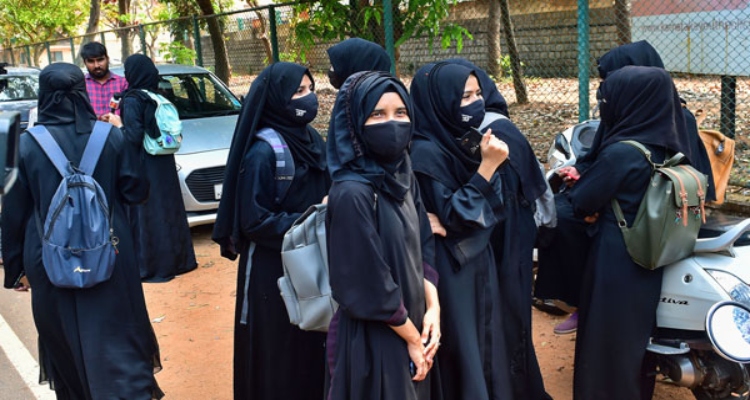
The Supreme Court on Thursday stated that it has scheduled a hearing for August 9 regarding a plea challenging the Bombay High Court’s decision, which had upheld a Mumbai college’s ban on wearing ‘hijab,’ ‘burqa,’ ‘naqab,’caps, stoles on campus.
A bench comprising Chief Justice D.Y. Chandrachud and Justices J.B. Pardiwala and Manoj Misra took note on Thursday of a lawyer’s submission that term exams begin today and students from the minority community will face difficulties due to the dress code instructions.
Lawyer Abiha Zaidi, representing the petitioners including Zainab Abdul Qayyum, had sought an urgent hearing due to the commencement of unit tests.
The CJI confirmed, “It is coming up tomorrow (Friday). I have listed it already.”
On June 26, the Bombay High Court refused to interfere with the Chembur Trombay Education Society’s N.G. Acharya and D.K. Marathe College’s decision, stating that such rules do not violate students’ fundamental rights. The court held that a dress code is meant to maintain discipline and is part of the college’s fundamental right to “establish and administer an educational institution.”
The Supreme Court has not yet conclusively decided on the legality of such directives issued by educational institutions. On October 13, 2022, a two-judge bench delivered opposing verdicts in the Karnataka hijab controversy. Justice Hemant Gupta, then retired, dismissed appeals challenging the Karnataka High Court’s refusal to lift the ban, while Justice Sudhanshu Dhulia ruled there should be no restriction on wearing the hijab in schools and colleges in the state. The top court has yet to constitute a larger bench to decide the Karnataka hijab issue.
The Mumbai college’s decision has renewed focus on the matter. The Bombay High Court dismissed the plea against the ban, stating that the dress code applied to all students irrespective of religion or caste. The students, in their second and third years of the science degree course, had challenged the college’s directive prohibiting hijabs, naqabs, burqas, stoles, caps, and badges on campus.
The petitioners argued that this ban violated their fundamental right to practice religion, right to privacy, and right to choice, calling the college’s action “arbitrary, unreasonable, bad-in-law, and perverse.” However, the high court found no violation of Articles 19(1)(a) (freedom of speech and expression) and 25 (freedom to practice religion) of the Constitution and did not accept the contention that wearing a hijab, naqabs, or burqas was an essential religious practice.
The high court noted that the dress code applied only within the college premises and did not otherwise affect the petitioners’ freedom of choice and expression.




